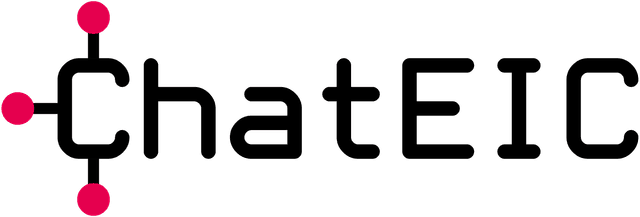
Finding Updates and News for the EIC Accelerator (SME Instrument Phase 2)
The European Commission has a variety of channels where updates and news are published. For the EIC Accelerator (SME Instrument Phase 2), there is not a single, centralized source of information but a variety of fragmented channels which should be scanned periodically in order to remain up-to-date on recent developments.
This is essential in preparing a successful grant (or blended finance) application since proposal template updates are usually unannounced and implementing them can be critical for success.
It is also important to always remain in the loop regarding the European Innovation Councils (EIC) newest strategies since they can make the difference between an immediate rejection (i.e. non-environmental applications during the Green Deal cut-off) and receiving a fair proposal evaluation.
Startups, as well as Small- and Medium-Sized Enterprises (SME), should be particularly careful to do not miss any details since, for example, the United Kingdom (UK) is now only allowed to apply for grant financing under the EIC Accelerator but not for equity (i.e. blended finance) for the deadline on October 7th 2020 due to Brexit. After Horizon 2020, the UK's future is likewise uncertain as it relates to Horizon Europe in 2021-2027.
In the past, changes have also been made to the number of applicants whereas consortia were allowed pre-2019 but the current EIC Accelerator is exclusively a single-applicant program.
The following is a short collection of the most important websites and pages which are used to publicise relevant EIC Accelerator (SME Instrument Phase 2) updates. These are not only important for consultants and professional writers but also for applicants who are currently resubmitting a proposal and want to verify if templates or guidelines have changed since the last submission.
Note: The list is focussing on updates rather than informative material so manuals and general guidelines are excluded.
1. Twitter
The EIC twitter account (@EUeic) is one of the most useful resources for receiving the newest EIC Accelerator updates. Information regarding interview invitations, delays and other general changes is often published on Twitter first. It is always worth studying the account's timeline and replies when considering to apply for the grant financing since essential updates will likely be found there (i.e. EIC Accelerator Interviewees from March Deadline Unable to Apply for May Cut-Off)
2. EIC Accelerator Call Page
The official call page for the EIC Accelerator is likewise rich in content, ranging from the current application deadlines, over documentation on the grant status to an update feed which often details the number of submissions received and sometimes includes flash reports which contain statistics on the actual call budget, above-threshold proposals and other relevant information.
The collection of documents also contains, amongst other things, a complete list of the financed companies and brief information on their respective projects. Updates are infrequent and inconsistent but valuable in most cases.
3. Google
One of the most important aspects of staying up to date with the EIC Accelerator is the official documentation for the Work Programme and the Proposal Template. Both documents are usually quietly uploaded by the EU and replace the old documents automatically which means that a writer or consultant has to periodically check if the files have changed.
The easiest way to do this is, for example, to search for EIC Accelerator template PDF on Google and to check the PDF for its current version which is given at the beginning of the document (i.e. the last update as indicated in the history table). The details of the performed changes are usually conveniently listed as well which makes studying the new template easier (i.e. view EIC Accelerator: New Proposal Template from March 20th).
The same is true for the Work Programme which is just as important as the proposal template and can be searched and investigated in the same way.
4. European Innovation Council (EIC) Newsletter
The EIC has recently created a newsletter which is designed to keep all interested parties up to date. While it might grow in the future, so far, the content has been infrequent and less informative than other outlets due to simple re-posting of existing content.
5. Newsroom: EASME and SME Instrument News
The search pages on the EU's Newsroom can be very useful in filtering for relevant information related to topics of interest. The Executive Agency for Small- and Medium-Sized Enterprises (EASME) and European Innovation Council (EIC) are great choices to search for since they often publish EIC Accelerator- related content. Other options are keywords such as Innovation or other similar terms.
6. Related Websites or Institutions
Alternative resources for EIC Accelerator-related content are informative websites by consultancies specialised on the grant or initiatives such as Access4SMEs and Access2EIC. Social media can also be a useful way to identify quality information sources (i.e. #eicaccelerator on Twitter) and can be beneficial for both prospect- and awarded-companies.
These tips are not only useful for European startups, professional writers, consultants and Small and Medium-Sized Enterprises (SME) but are generally recommended when writing a business plan or investor documents.
Deadlines: Post-Horizon 2020, the EIC Accelerator accepts Step 1 submissions now while the deadlines for the full applications (Step 2) under Horizon Europe are listed below. The Step 1 applications must be submitted weeks in advance of Step 2. The next EIC Accelerator cut-off for Step 2 (full proposal) can be found here. After Brexit, UK companies can still apply to the EIC Accelerator under Horizon Europe albeit with non-dilutive grant applications only - thereby excluding equity-financing. Switzerland has resumed its participation in Horizon Europe and is now eligible for the EIC Accelerator.
EIC Accelerator Step 1 Deadline 2025
Contact: You can reach out to us via this contact form to work with a professional consultant.
AI Grant Writer: ChatEIC is a fully automated EIC Accelerator grant proposal writer: Get it here.
EIC Accelerator: EIC Accelerator delivers flexible funding options including blended finance (€2.5M grant + €0.5M-€10M equity), grant-only (up to €2.5M), or equity-only arrangements for scale-up and market deployment of breakthrough innovations. The initiative targets SMEs, start-ups, and small mid-caps with up to 499 employees. Technology areas include Biotech, Engineering, Artificial Intelligence, Energy, Quantum, Aerospace, Advanced Materials, and Semiconductors. Get Started
EIC Pathfinder: EIC Pathfinder delivers up to €3 million for Open calls and up to €4 million for Challenge-based calls to support early-stage research and development with proof-of-principle validation. The initiative requires research consortia with a minimum of 3 partners from 3 different countries, including universities, research organizations, and SMEs. Primary technology focus areas include Health/Medical, Quantum Technologies, AI, Environmental/Energy, and Advanced Materials. Get Started
EIC Transition: EIC Transition delivers up to €2.5 million in funding to overcome the 'valley of death' gap between laboratory research and market deployment, emphasizing technology maturation and validation. The initiative supports single legal entities or small consortia of 2-5 partners including SMEs, start-ups, spin-offs, and research organizations. Key technology domains include Health/Medical Technologies, Green/Environmental Innovation, Digital/Microelectronics, Quantum Technologies, and AI/Robotics. Get Started
EIC STEP Scale-Up: EIC STEP Scale-Up delivers significant equity investments of €10-30 million for established deep-tech companies prepared for hyper-growth and large-scale expansion. The initiative targets SMEs or small mid-caps with up to 499 employees who have obtained pre-commitment from qualified investors. Primary focus areas include Digital & Deep Tech (Semiconductors, AI, Quantum), Clean Technologies for Net-Zero objectives, and Biotechnologies. Get Started
EIC Pre-Accelerator: EIC Pre-Accelerator represents a pilot initiative delivering €300,000-€500,000 in funding for early-stage deep-tech development and preparation for the EIC Accelerator program. This program is exclusively accessible to single SMEs or small mid-caps from 'Widening countries' to foster regional innovation development. The initiative encompasses deep-tech innovations across physical, biological, and digital domains. Get Started
EIC Advanced Innovation Challenges: EIC Advanced Innovation Challenges represents a new pilot initiative delivering €300,000 (Stage 1) and up to €2.5 million (Stage 2) for breakthrough deep-tech innovations through ARPA-style staged funding mechanisms with integrated demand-side engagement. This initiative targets single entities or small consortia (2-3 partners) including SMEs, start-ups, and research organizations. Primary focus areas include Physical AI for autonomous robotics applications and New Approach Methodologies (NAMs) for animal-free biomedical testing, with TRL 4 entry requirements and demonstrated end-user commitment. Get Started
Eureka Network: The Eureka Network delivers various international collaborative R&D initiatives such as Network Projects, Clusters, Eurostars, Globalstars, and Innowwide, providing funding from €50K to €6.75M per project based on the specific initiative. This network emphasizes market-driven innovation and deep-tech advancement across multiple technology sectors including ICT/Digital, Industrial/Manufacturing, Bio/Medical Technologies, Energy/Environment, Quantum, AI, and Circular Economy. Eligible participants include SMEs, large enterprises, research organizations, universities, and startups, with Eurostars particularly focused on R&D-performing SMEs. Get Started
Eurostars: Eurostars represents a joint EU-Eureka initiative delivering €50K-€500K for international R&D collaboration specifically led by SMEs. The program adopts a bottom-up approach, accepting projects from all technology fields without predefined thematic restrictions. R&D-performing SMEs must lead the consortium and demonstrate significant R&D activities. Get Started
Innovation Partnership: Innovation Partnership enables collaborative innovation between public and private sectors with typical funding of €1-5 million per project. The initiative supports cross-sectoral strategic technologies through public-private partnerships and consortia. Projects concentrate on addressing societal challenges through collaborative innovation approaches. Get Started
Innovation Fund: The EU Innovation Fund delivers substantial funding of €7.5 million to €300 million for large-scale demonstration of innovative low-carbon technologies. The initiative targets clean energy, carbon capture, renewable energy, and energy storage technologies to accelerate the transition to a low-carbon economy. Eligible participants include large companies, consortia, and public entities capable of implementing large-scale demonstration projects. Get Started
Innovate UK: Innovate UK delivers various programs with funding ranging from £25K to £10M depending on the specific initiative, supporting business-led innovation, collaborative R&D, and knowledge transfer. The organization funds projects across all sectors with particular emphasis on emerging technologies and supports UK-based businesses, research organizations, and universities. Programs are designed to drive economic growth through innovation and technology commercialization. Get Started
Industrial Partnership: Industrial Partnership delivers €2-10 million in funding for industrial research and innovation partnerships focusing on manufacturing, industrial technologies, and digital transformation. The initiative supports industrial consortia and research organizations in developing collaborative solutions for industrial challenges. Projects aim to strengthen European industrial competitiveness through strategic partnerships. Get Started
LIFE Programme: The LIFE Programme delivers €1-10 million in funding for environmental protection, climate action, and nature conservation projects across the European Union. The initiative supports environmental technologies, climate adaptation strategies, and biodiversity conservation initiatives. Eligible participants include public authorities, private companies, NGOs, and research institutions working on environmental and climate challenges. Get Started
Neotec: Neotec represents a Spanish initiative delivering €250K-€1M in funding for technology-based business creation and development, supporting the growth of innovative Spanish SMEs and start-ups. The program covers all technology sectors and aims to strengthen Spain's technology ecosystem. Funding is specifically targeted at Spanish technology-based SMEs and start-ups to enhance their competitiveness and market presence. Get Started
Thematic Priorities: EU Thematic Priorities encompass various programs aligned with EU strategic priorities including green transition, digital transformation, health, and security initiatives. Funding amounts vary based on the specific program and call requirements, with projects designed to address key European challenges. Applicant eligibility varies by specific program and call, with different requirements for different thematic areas. Get Started
Any more questions? View the Frequently Asked Questions (FAQ) section.
Want to see all articles? They can be found here.
For Updates: Join this Newsletter!
